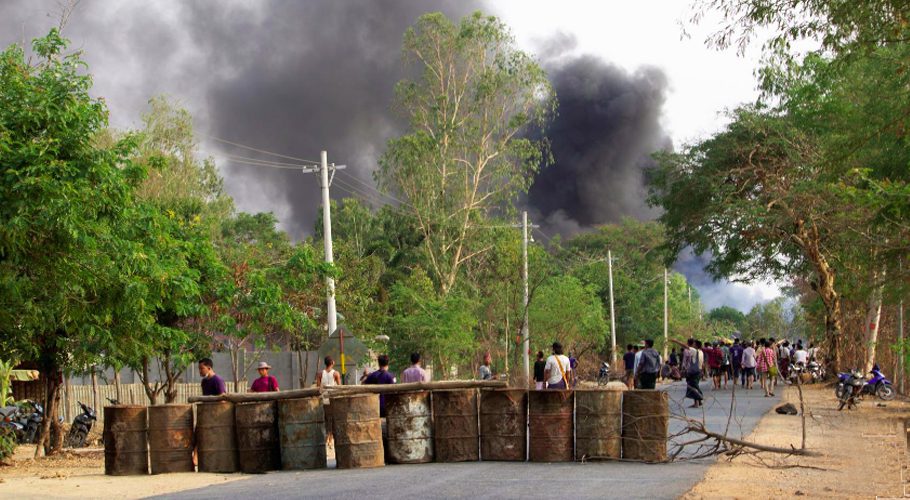YANGON: Myanmar security forces fired rifle grenades at protesters in a town near Yangon, killing more than 80 people, the Assistance Association for Political Prisoners (AAPP) monitoring group said.
Details of the death toll in the town of Bago, 90 km northeast of Yangon, were not initially available because security forces piled up bodies in the Zeyar Muni pagoda compound and cordoned off the area. The AAPP and a local news outlet said that 82 people were killed during the protest against the military coup in the country.
Firing started before dawn on Friday and continued into the afternoon, Myanmar Now said. “It is like genocide,” the news outlet quoted a protest organiser called Ye Htut as saying. “They are shooting at every shadow.” Many residents of the town have fled, according to accounts on social media.
AAPP, which has maintained a daily tally of protesters killed and arrested by security forces, has previously said 618 people have died since the coup.
That figure is disputed by the military, which says it staged the coup because a November election won by Aung San Suu Kyi’s party was rigged. The election commission has dismissed the assertion.
Junta spokesman Major General Zaw Min Tun told a news conference in the capital, Naypyitaw, that the military had recorded 248 civilian deaths and 16 police deaths, and said no automatic weapons had been used by security forces.
An alliance of ethnic armies in Myanmar that has opposed the junta’s crackdown attacked a police station in the east on Saturday and at least 10 policemen were killed, domestic media said.
The police station at Naungmon in Shan state was attacked early in the morning by fighters from an alliance that includes the Arakan Army, the Ta’ang National Liberation Army and the Myanmar National Democratic Alliance Army.
Myanmar’s military rulers said on Friday that protests against its rule were dwindling because people wanted peace, and that it would hold elections within two years.
Ousted Myanmar lawmakers urged the United Nations Security Council to take action against the military. “Our people are ready to pay any cost to get back their rights and freedom,” said Zin Mar Aung, who has been appointed acting foreign minister for a group of ousted lawmakers. She urged Council members to apply both direct and indirect pressure on the junta.
“Myanmar stands at the brink of state failure, of state collapse,” Richard Horsey, a senior adviser on Myanmar with the International Crisis Group, told the informal UN meeting, the first public discussion of Myanmar by council members.


























![Local residents at the Swat River, which is overflowing due to pre-monsoon heavy rains in the area on the outskirts of Mingora, the main town of Pakistan's Swat Valley [Sherin Zada/AP]](https://mmnews.tv/wp-content/uploads/2025/06/Flooding-in-Swat-river-120x86.jpg)








